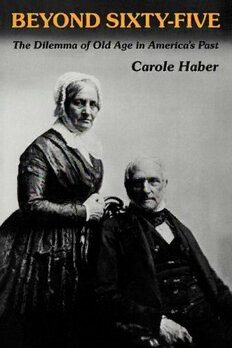
Beyond Sixty-Five: The Dilemma of Old Age in America's Past PDF
192 Pages·1985·5.329 MB·English
Most books are stored in the elastic cloud where traffic is expensive. For this reason, we have a limit on daily download.
Preview Beyond Sixty-Five: The Dilemma of Old Age in America's Past
Description:
This book investigates the changing roles and perceptions of old age in nineteenth-century America. It shows how the economic and social transformation of the nation affected the condition of the aged, as it altered beliefs about their abilities and needs. Focusing on the ideas of doctors, charity workers, and social planners, it traces the process by which their view of senescence was incorporated into geriatric medicine, the development of the nation's first old-age homes and mandatory retirement plans. With the adoption of these programmes, old age came to be seen as a widespread social problem. By the early twentieth century, it had become characterized as a time of dependence and disease - an attitude which continues to influence the way that modern Americans perceive and treat the elderly.
See more
The list of books you might like
Most books are stored in the elastic cloud where traffic is expensive. For this reason, we have a limit on daily download.
